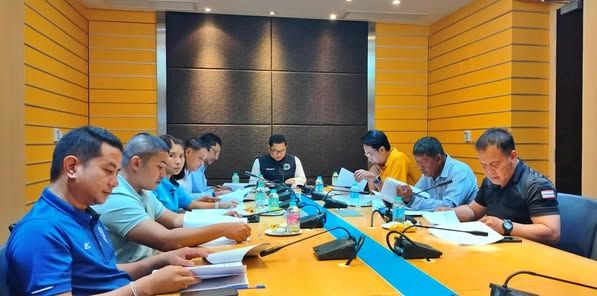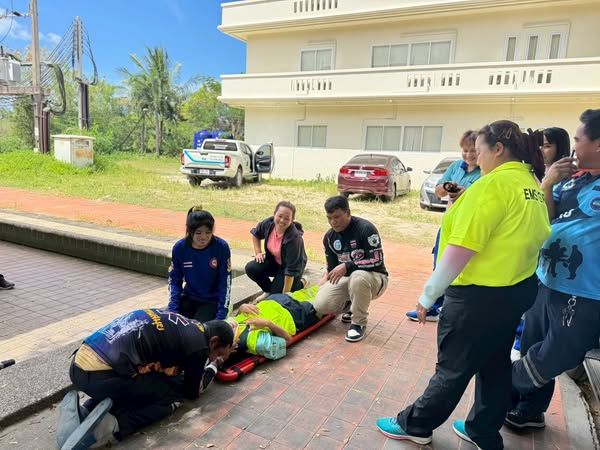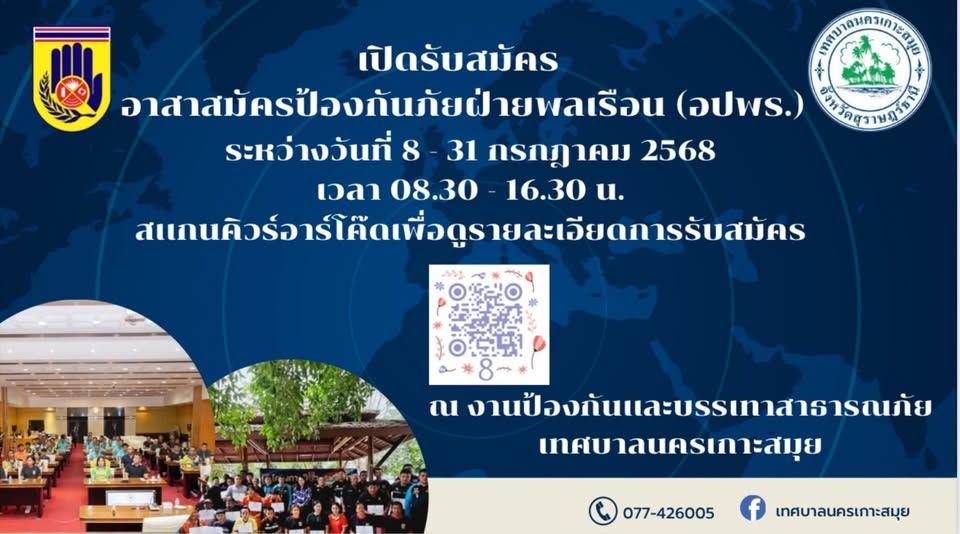Deputy Interior Minister Chada Thaiset has finalised a list of 600-700 influential figures, including those on a watch list, which will be reviewed by a committee to determine if they have been involved in any of the 16 types of crime. Mr. Chada plans to tour the country to adjust attitudes towards illegal activities and require village and tambon chiefs to undergo urine tests. #Thailand #CrimePrevention #InteriorMinistry #IllegalActivities #Tourism
The list of “influential figures,” who exercise dark influence across the country, has been finalized and is slated for discussion at a committee meeting on Tuesday, according to Deputy Interior Minister Chada Thaiset.
Number of Individuals on the List
The list comprises around 600-700 names, with fewer than 100 of them classified as hard-core members and placed in the Red group. The remaining individuals belong to the Yellow group, which consists of people on a watch list, including hired gunmen. The majority of these gunmen are freelancers, as per Mr. Chada.
Classification of Influential Figures
Mr. Chada refrained from divulging further details, stating that the list must be cross-referenced with the databases of police and security agencies. While still considered confidential, the list will first be screened by a committee established by the Interior Ministry. The committee will determine if the individuals on the list have been involved in any of the 16 types of crime that classify them as influential figures or people wielding dark influence.
Sixteen Types of Crime
The 16 types of crime that form the criteria for classification as an influential figure are:
- Illegal money lending
- Collusion in bidding for work contracts with government agencies
- Illegally collecting brokerage fees from bus operators
- Extortion of businesses
- Smuggling
- Running gambling dens
- Illegal sex trade
- Human smuggling
- Cheating workers seeking overseas jobs
- Cheating tourists
- Gunmen for hire
- Forceful debt collection
- Dealing in war weapons and other illegal firearms
- Encroaching on state land and destroying natural resources
- Demanding bribes on public highways
- Involvement in illicit drugs
Addressing Village and Tambon Chiefs
Deputy Interior Minister Chada Thaiset plans to tour the country and meet with village chiefs (phuyaiban) and tambon chiefs (kamnan) to adjust their attitudes towards illegal activities. Local leaders will be urged to abstain from any unlawful actions. Additionally, individuals assuming the roles of village and tambon chiefs will be required to undergo urine tests.
Mr. Chada, who previously held significant influence in his home province of Uthai Thani, admitted to once being classified as an “influential person.” However, he stated, “I have proved that I have not done anything illegal. I am no longer an influential person. I am now a cabinet minister working for the country.”
Frequently Asked Questions
1. What are the different categories of influential figures on the list, and how many individuals are classified in each?
The list comprises around 600-700 names, with fewer than 100 of them classified as hard-core members and placed in the Red group. The remaining individuals belong to the Yellow group, which consists of people on a watch list, including hired gunmen.
2. How are the individuals on the list being screened for involvement in criminal activities?
The list will first be screened by a committee established by the Interior Ministry. The committee will cross-reference the list with the databases of police and security agencies and determine if the individuals on the list have been involved in any of the 16 types of crime that classify them as influential figures or people wielding dark influence.
3. What actions does Deputy Interior Minister Chada Thaiset plan to take to address illegal activities among village and tambon chiefs?
Deputy Interior Minister Chada Thaiset plans to tour the country and meet with village chiefs (phuyaiban) and tambon chiefs (kamnan) to adjust their attitudes towards illegal activities. Local leaders will be urged to abstain from any unlawful actions. Additionally, individuals assuming the roles of village and tambon chiefs will be required to undergo urine tests.




